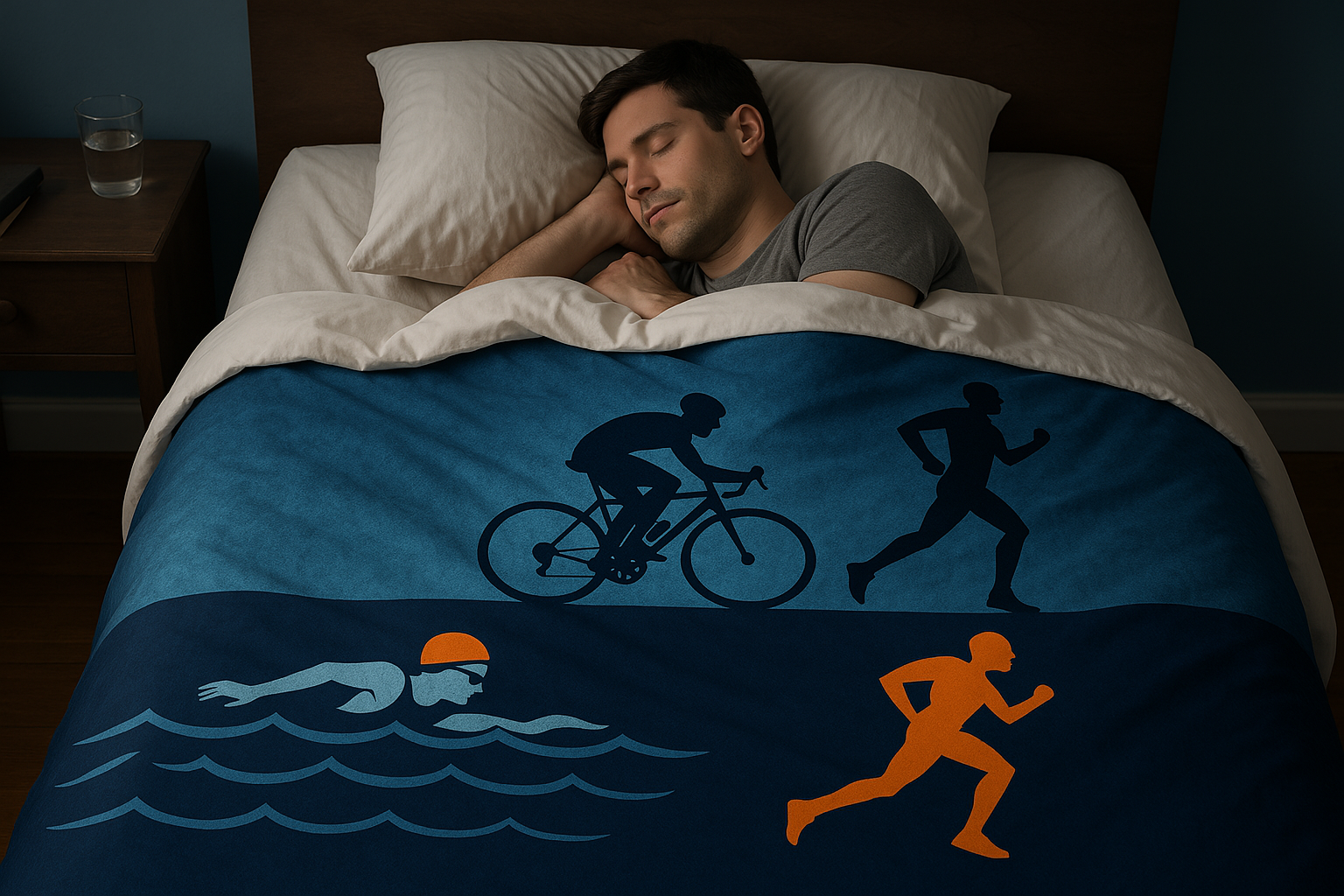As triathletes, we’re masters of multitasking. Between training sessions, managing work commitments, and spending time with family, sleep often becomes the first casualty in our packed schedules. Early mornings, late nights, and squeezing training sessions into every spare moment means sacrificing valuable sleep. However, neglecting rest can seriously undermine our performance and recovery.
The Recovery Power of Sleep
Sleep is arguably the most potent recovery tool we have at our disposal. During sleep, your body undergoes critical repair processes, regenerating muscle tissues, replenishing energy stores, and reducing inflammation. High-quality sleep helps ensure that each training session builds upon the last, preventing injury and burnout.
Research underscores how essential sleep is for athletic recovery. A study in the journal Medicine & Science in Sports & Exercise demonstrated that sleep-deprived athletes have significantly reduced muscle glycogen replenishment, impaired reaction times, and decreased cognitive function. This means without adequate sleep, your body struggles not only physically but also mentally.
Boosting Race Performance
Sleep directly impacts race-day performance. Research published in the journal Sports Medicine shows athletes who increased their sleep duration to between 9-10 hours per night experienced substantial improvements in speed, reaction time, and overall endurance. Even a short-term increase in sleep leading up to an event can notably enhance performance and reduce perceived effort during races.
Minimum Sleep Recommendations
While individual needs vary, triathletes should aim for at least 7 to 9 hours of sleep per night. However, during intense training phases or in the lead-up to races, you may benefit from extending your sleep window to maximise recovery and performance. Prioritising additional sleep in the week leading up to race day can significantly enhance your race readiness and outcomes.
Practical Steps to Better Sleep
- Consistency: Aim for a regular sleep schedule—even on weekends.
- Quality Environment: Keep your bedroom cool, dark, and quiet.
- Limit Technology: Avoid screens at least one hour before bedtime.
- Optimise Nutrition: Limit caffeine and heavy meals close to bedtime.
Remember, training harder doesn’t always mean training smarter. Prioritising sleep is an investment in your performance, health, and longevity as a triathlete. Make sleep a non-negotiable part of your routine, and watch your performance reach new heights.
